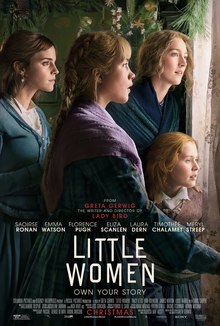
There’s been films this year that have enamored me, mesmerized me, and reminded me why I love films, but all year I have been waiting for a triumph on the level of 1917. Not only is it Sam Mendes’ strongest directorial effort, it’s one of the greatest filmmaking feats in years, breaking technical boundaries and capturing your senses from the first to final minute, leaving a remarkable lasting impact for long after the credits roll. Though on paper, the story sounds rather simple, Mendes is still able to create the most awe-inspiring and gripping cinematic experience of the year through the film’s outstanding execution. The film is made to look like one unbroken take, with the help of legendary cinematographer Roger Deakins, whose work alongside filmmakers like the Coens, Denis Villeneuve, and Mendes has earned him 15 Oscar nominations and one win — here, he breaks his own boundaries once again with jaw-dropping long takes, beautifully capturing the non-stop action through trenches and city ruins and conveying as powerful of a story with no cuts that most films do with thousands. The one-take act is not only dazzling from a technical perspective, but makes the story feel like one continuous movement, without room to stop and catch your breath, which works perfectly for this adventure war film in which time is the enemy. The unbelievable production design that brings these settings to life is immersive and exemplary. Also worth noting is the work of composer Thomas Newman. Having heard many of his scores that he’s made throughout the decades, this feels like the culmination of all his works in which he beautifully covers a variety of tones — ambient, thrilling, reflective, and emotional.
The stylistic elements work perfectly to elevate a basic concept into a nail-biting adventure where we fear for our leads’ lives as the journey into lands of uncertainty. Speaking of the leads, George McKay is especially excellent at capturing the fearful but determined spirit of his character. We don’t need to hear much about the characters’ pasts or personal lives to feel something — through moments of human instinct, persistence, and compassion, Mendes gives us everything we need to care about these characters and get more emotional than almost any film this year. So the style doesn’t just serve as a “gimmick” to round up Oscar nominations, but as a form of storytelling to make an already superb script feel even stronger. The closing cards, in which Mendes dedicates the film to his grandfather (who was a WWI veteran himself), makes the effect even more powerful. Thinking about the film after it ended, I was reminded why I go to the movies, and what storytelling is for — not just to put asses in seats, but to leave a lasting effect on an audience by utilizing the art of cinema to tell stories with true meaning and soul. Whether you’re a fan of war movies or not, it doesn’t matter, because 1917 is the film this year that cannot be missed on the big screen at any costs, and a definite frontrunner this year. It will certainly be looked back at in years to come for its originality and trailblazing in its genre, and might not be topped by another war film for many, many years.






